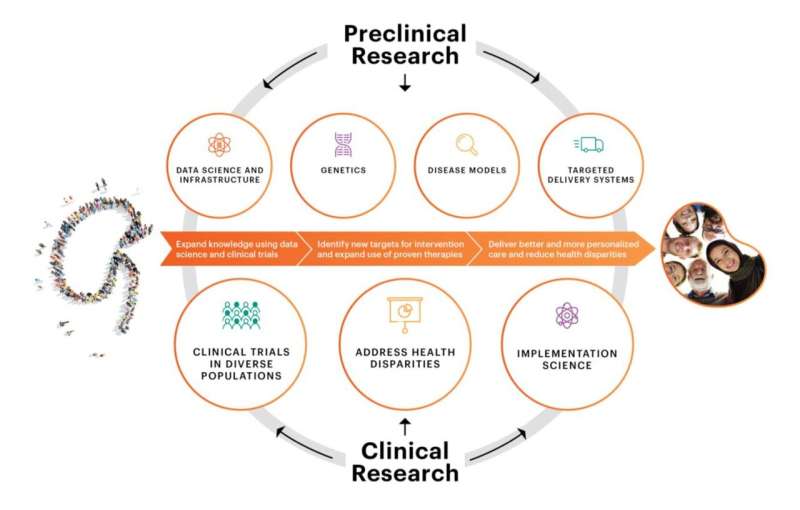
The National Kidney Foundation (NKF) released today a research roadmap that, if funded by Congress, would quickly accelerate innovations in treatment and increase understanding of kidney disease.
Kidney disease is growing in the United States so much so that now 1 in 3 adults are at risk, yet the pace of funding, research, and innovation in therapies is not sufficient to tackle the illness and lags far behind research for other diseases. In fact, many treatment options for those with the most advanced stage of chronic kidney disease (CKD) haven’t changed in 40 years.
Today’s report maps a strategy to accelerate scientific discovery and address the most vexing challenges in kidney disease, especially the challenges posed by healthcare inequity. The report calls on Congress to fully fund research in preclinical science, genetics, health equity, implementation science, and other priorities.
To craft the roadmap, NKF convened nephrology leaders from prominent U.S. academic institutions, experts from the pharmaceutical industry, individuals with CKD and their care partners, and living kidney donors to identify opportunities and priorities for preclinical and clinical kidney-related research and present the findings to stakeholders, policymakers, and federal funders.
“We urge Congress and the Administration to significantly increase its investment in CKD research,” said Holly Kramer, MD, MPH, co-author, NKF Board member and immediate past President, and Professor of Public Health Sciences and Medicine, Division of Nephrology and Hypertension Loyola University Chicago. “Investment in research saves lives as demonstrated by the decrease in mortality for heart disease and cancer over the past 20 years due to research. Research can advance knowledge on how and why kidney disease starts and progresses and can identify better treatments. Dialysis should not be the only solution to a disease that affects so many people, especially those from under-represented groups.”
An estimated 37 million adults have CKD but 90% are unaware they even have it. Our aging population and our nation’s obesity epidemic, along with increased prevalence of type 2 diabetes will increase the risk of CKD and kidney failure.
In addition to its toll on patients and families, CKD threatens the financial sustainability of the Medicare program. In FY 2020, Medicare spent $130 billion on patients with a CKD diagnosis while the National Institute of Diabetes and Digestive and Kidney Diseases (NIDDK) spent only $700 million on CKD research. Despite the prevalence and impact of CKD on patients, families, Medicare, and other parts of our healthcare system, federal support for CKD research is wholly inadequate. This results in lost opportunities for research breakthroughs that can lead to new treatments to slow disease incidence and progression, and to address disparities through greater utilization of proven therapies.
“People of color are underrepresented in kidney disease research, yet they are the majority of people affected by kidney disease,” said Nichole Jefferson, a kidney patient advocate from Dallas, Texas. “Improved research and clinical trials that include diverse people will help us develop better treatment options to benefit patients affected by kidney disease.”
“Increased investment in kidney disease will save lives and reduce health disparities,” added Dr. Kramer. “There are too many people suffering from this deadly disease and the costs are not sustainable. Policy makers must act now.”
Source: Read Full Article